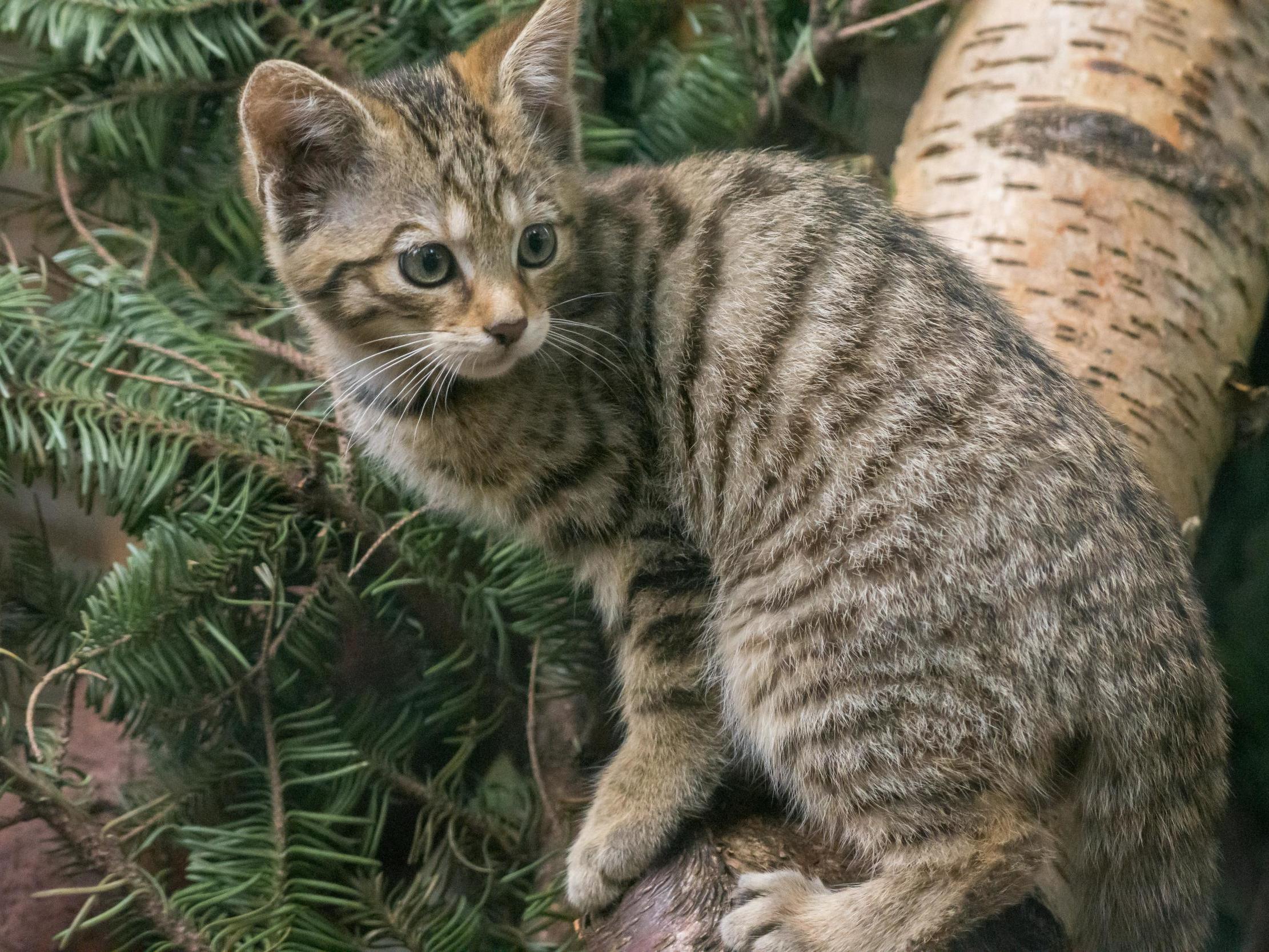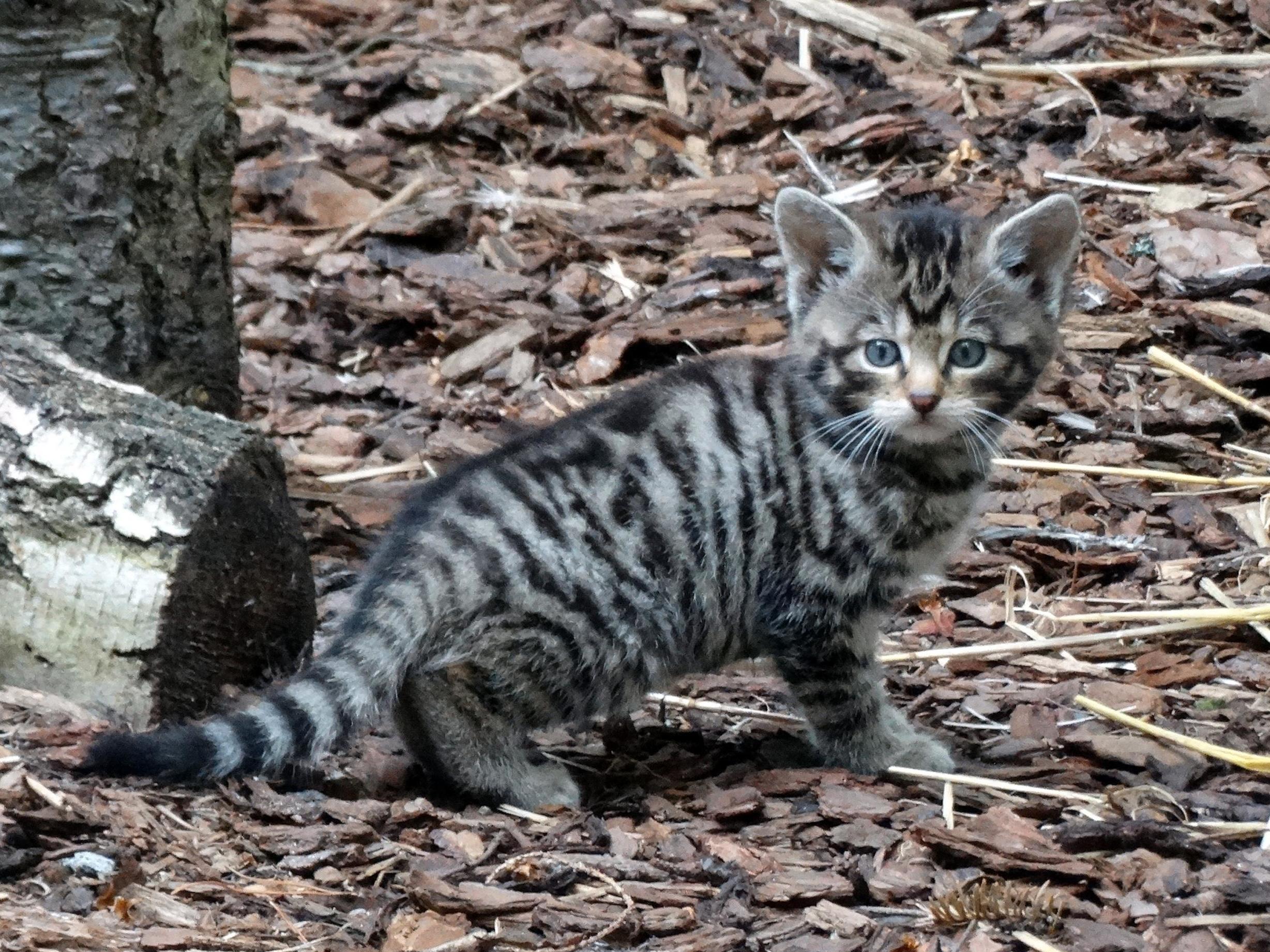Rare and endangered wildcat kittens born in Scotland
Scottish wildcats are European protected species and the only native member of cat family still found in wild in UK

Four critically endangered wildcat kittens have been born at Highland Wildlife Park, near Aviemore.
The Royal Zoological Society of Scotland (RZSS) unveiled the new kittens to the public this week when the wildcat viewing area at the attraction was reopened.
The kittens, one male and three females, are named Strom, Eilein, Druim and Vaara. They were born during lockdown the parents Fiain and Blair, said Keith Gilchrist, animal collection manager at the park.
“It has been great watching them grow and it is fantastic to now be able to welcome visitors to meet them too,” he added.
Visitors to the park will be encouraged to wear face masks in the wildcat viewing areas to keep the animals and others safe. This follows several reports of cats having caught the Covid-19 virus from humans.
Scottish wildcats are a European protected species and are the only native member of the cat family still found in the wild in the UK.
A survey carried out between 2015 and 2018 by the International Union for Conservation of Nature (IUCN) found that in the wild only 20 per cent of wildcats are fully wildcat, while the remaining 80 per cent were cross-breeds or entirely domestic.
The RZSS is leading a new partnership, called Saving Wildcats, in order to conserve the species by breeding and releasing wildcats back into the wild.

David Barclay, offsite conservation manager at Saving Wildcats, said: “Following a sad history of habitat loss, persecution and more recently, breeding with domestic cats, wildcats are on the brink of extinction in Scotland but it’s not too late.
“By bringing together the expertise and skills of national and international organisations, the Saving Wildcats project can secure a future for the Highland tiger by breeding and releasing wildcats into the wild, so every birth is a potential lifeline for the species.”
The project is also in collaboration with NatureScot, Forestry and Land Scotland (FLS), The Cairngorms National Park Authority (CNPA), Norden’s Ark and Junta de Andalucia.
Join our commenting forum
Join thought-provoking conversations, follow other Independent readers and see their replies
Comments
Bookmark popover
Removed from bookmarks